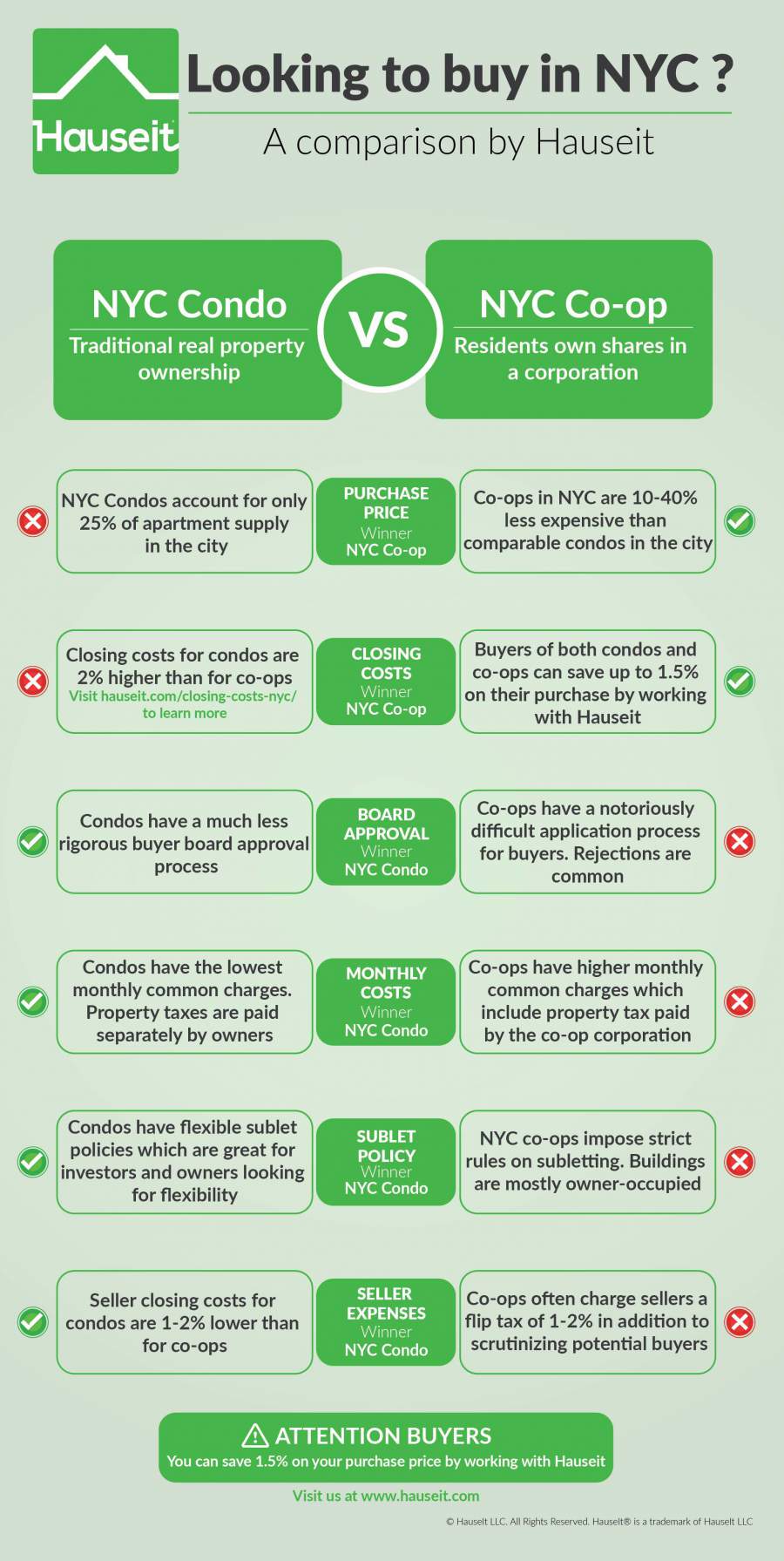Are you in the market for a new property in New York City? If so, you’ve likely realized that the city offers more than just the traditional condominium property type. NYC is a unique market in that the vast majority of available apartments for sale are co-ops, which is not actually a form of real property. Instead, co-op residents actually own shares in the co-operative corporation that owns the apartment building. So if you buy a co-op, you will not receive a traditional deed which is associated with typical real property investments like homes, condos, land, townhouses, etc.
While you may be attracted by the lower prices of co-ops (10-40% less expensive than traditional condos) as well as the lower buyer closing costs (2% less than for condos), these types of properties also come with other significant differences to their condo counterparts. Most immediately, you will discover that co-ops have very rigorous buyer board approval processes. This means that it’s both hard to buy and sell a co-op. Furthermore, co-ops have higher monthly common charges which include property tax paid by the co-op corporation. Co-ops are also very difficult to sublet. Condos have flexible sublet policies which are great for investors and owners looking for flexibility. Finally, co-ops often charge sellers a flip tax of 1-2% in addition to scrutinizing potential buyers through the board application process.
Before beginning your NYC property search, it’s best to spend a few minutes to really understand the difference between condos and co-ops and identify which property type makes the most sense for your personal situation. This infographic powered by Hauseit identifies the 6 key differences between condo and co-op properties in NYC which you should factor in to your decision.
Infographic Source : http://www.hauseit.com/co-op-vs-condo-nyc/
Tags 6 between Co-op Properties Condo Differences Key New York City
Check Also
The Essential House Turnover Checklist for New Home Owners
After years of hard work and dedication to saving money for your dream house, the …
 Infographic Portal New Infographics Resource Portal
Infographic Portal New Infographics Resource Portal
